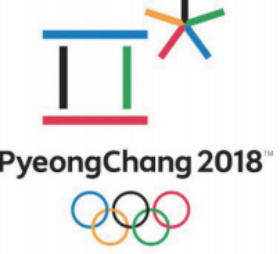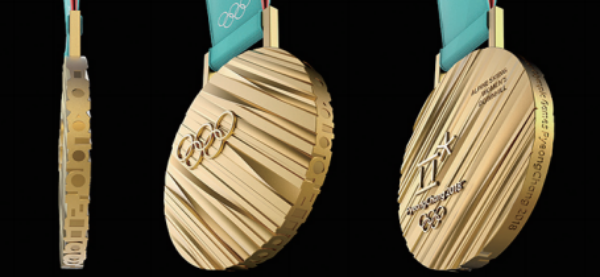As of November 1st, there will be only a hundred days left until the Opening Ceremony of the Pyeongchang 2018 Olympic Winter Games. Many Koreans might still remember the touching moment when Pyeongchang was finally selected as the next host of the 2018 Olympic Winter Games after enormous efforts stretching over 10 years. As the long awaited international festival is just around the corner now, the Sungkyun Times (SKT) looks over past efforts for bidding on the Olympics in Pyeongchang, charming points of the Pyeongchang 2018 Olympic Winter Games, and some of the remaining concerns about the event.
Journey of the Pyeongchang 2018 Olympic Winter Games
Two Failures, and the Third Attempt
In 2000, the 2010 Olympic Winter Games bidding committee for Pyeongchang was established for the first time based out of Yongpyong Ski Resort with its international standards and the experience of hosting the 1999 Asian Winter Games. In 2003, at the 115th International Olympics Committee (IOC) Session held in Prague, Pyeongchang unfortunately lost out to Vancouver, Canada by only three votes. Korea did not give up and established the 2014 Olympic Winter Games bidding committee for Pyeongchang in 2005, but once again Pyeonghang narrowly lost to Sochi, Russia by four votes at the 119th IOC Session held in Guatemala in 2007.
After two failures, the 2018 Olympic Winter Games bidding committee for Pyeongchang was founded in 2009 as the final attempt. Many international sports figures including Jacques Rogge, the previous chairman of the IOC who was in charge at that time, was optimistic about the bid for the 2018 Pyeongchang Olympic Winter Games, and the support rating of Koreans for hosting the Olympic Winter Games was as high as 91% at that time. Annecy, France and Munich, Germany were also listed as candidates, but Pyeongchang finally won the right to host the Olympics at the 123rd IOC General Assembly held in Durban in 2011, gaining 63 votes out of 95. It was a satisfying success after a decade of challenges.
The Pyeongchang 2018 Olympic Winter Games
The Pyeongchang 2018 Olympic Winter Games, the 23rd Olympic Winter Games, will be held for 17 days from February 9th to 25th 2018, in Pyeongchang, Korea. The Pyeongchang 2018 Paralympic Winter Games, the Olympic Games for disabled athletes, will be held for nine days from March 9th to 18th in Pyeongchang as well. The opening and closing ceremonies and most of the snow sports will be held in Pyeongchang, all ice sports in Gangneung, and alpine skiing in Jeongseon. There will be 102 sports events in 15 disciplines under three categories, and there will be more than 100 gold medals for the first time at the Olympic Winter Games. Six events including Snowboard Big Air for both men and women and alpine skiing team events will be newly added, making the number of women’s and mixed events the greatest in the history of Olympics.
Of Pyeongchang, By Pyeongchang, For Pyeongchang
Being that hosting the Olympic Winter Games was won through three trials over about 10 years, there were many meaningful elements and national efforts prepared for a successful opening of the Games.
High-Tech ICT Korean Olympics, an Information Technology (IT) Powerhouse
Pyeongchang is particularly focusing on efforts to host an up-todate Information and Communication Technology (ICT) Olympic Games, utilizing five cutting edge technologies represented by 5G, Artificial Intelligence (AI), Ultra High Definition (UHD), Virtual Reality (VR), and Internet of Things (IoT). You Youngmin, the Minister of the Ministry of Science and ICT, said “The Pyeongchang 2018 Olympic Winter Games will be remembered as the high-tech ICT Olympics in which Korea became a leading country in the Fourth Industrial Revolution.”
Three realistic media services will be provided by building 5th Generation Mobile Networks (5G) testbed networks, nearly 33 times faster than the existing Long Term Evolution (LTE); Interactive Time Slice, a multi-view service where the audience can select the exact position and moment of the clips of the matches while watching them from several angles; Point-view Service, a multi-viewpoint streaming service where the audience can watch real time clips of certain athletes, moments, or details of the match; and Think-view Service where people can enjoy clips from the athletes’ perspective. Interpretation and translation services via AI, 4K UHD broadcasts with four times clearer definition than existing full-HD definition, game experience via VR, and convenient services through IoT will be provided, as well. The Pyeongchang 2018 Olympic Winter Games, therefore, will be a more realistic and fun Games where the audience can experience the games like never before.
Korean Traditional Elements Reflected in the Olympics

The emblem of the Games is considered very neat, unique, and meaningful as it uses the initial consonants of 평창 (Pyeongchang), ‘ㅍ’ and ‘ㅊ’. It also contains a huge significance in that it utilizes Hangeul, the Korean Alphabet. ‘ㅍ’ expresses the harmony of the sky, earth, and the people, while ‘ㅊ’ represents the snow, ice, and Winter Games athletes. It signifies an open world where athletes and all global villagers get along in the snow and ice of Pyeongchang, where the sky and the Earth meet. Mascots of the Games are animals that represent Korea or are designated as natural monuments of Korea. Soohorang, the mascot of the Pyeongchang 2018 Olympic Winter Games, is the combination of ‘Sooho’ which means to protect the athletes, participants, and spectators, ‘rang’ which means tiger, especially white tigers which represent Korea, and Jeongseon Arirang, one of the most famous folk songs in Korea. Bandabi, the mascot of the Pyeongchang 2018 Paralympic Winter Games, is an Asiatic Black Bear which signifies firm will and courage that can encourage the athletes to exceed their limits. It is a combination of ‘Banda’ which came from ban-dal, half-moon in Korean, and ‘bi’ which means competition.


The design of the medals was also inspired by Korean traditional heritage. The consonants of ‘평창동계올림픽 (The Pyeongchang 2018 Olympic Winter Games)’ are used for the front and side design of the medals, and the traditional cloth used in Hanbok, a Korean tradition dress, are being used as the medal straps for the first time in Olympic history. The cases for the medals were also inspired by the roof of Hanoks, traditional Korean-style houses. Athlete-Centric State-of-the-Art Facilities and Traffic Improvement Among the 12 sports stadiums, seven for snow sports and five for ice sports, six stadiums are being newly built for the Olympic Games.
The existing and new stadiums were verified in terms of facilities and management throughout 29 Olympic test events, which were held to make sure the Olympic squads experience the region and stadiums where the Olympic Games are being held beforehand. The scale of the newly-built stadiums and the change of complemented stadiums were highly praised by the foreign press, participating athletes, and officials from international leagues of each event. During the past six years in preparation for the Olympic Games, 1,039 kilometers of new road including new railroad sections such as Wonju-Gangneung and new highways such as Seoul-Yangyang were constructed within Gangwon province. Preparation of all of the new traffic facilities and improvements will be finished by the end of November, and it is expected that the satisfaction of the audiences will rise since their accessibility and convenience will be magnified thanks to the smooth traffic communication between each stadium.
Remaining Questions to Be Answered
Only three months left until the Opening ceremony of the Pyeongchang 2018 Olympic Winter Games! The start of the international sports festival is literally just around the corner and most of the preparations are going along smoothly, but still there are some concerns and problems to be solved.
Promotion of the Pyeongchang 2018 Winter Olympic Games: A Success or a Failure?
Due to multiple Korean government misconducts including the Choi Soon-sil scandal which aroused the country last winter, the interest of people towards the Olympic Games waned as most of them were more interested in politics rather than sports. Moreover, as it turned out that the Korea Skating Union was also involved in the center of the controversy people gradually turned their back against ice sports. According to a survey on the interest and prospects on the Pyeongchang 2018 Winter Olympic Games conducted by Gallup Korea, only 48% of the respondents replied that they were interested in the Olympic Games. Some are pointing out that even though the promotion budget was nearly ₩16.9 billion, the results were highly unsatisfying. There are a lot of drawbacks in the official promotional video of the Pyeongchang 2018 Winter Olympic Games such as the absence of English subtitles. Especially, ‘ARARIYO Project’, a promotional video of the Olympic Games posted by the Ministry of Culture, Sports and Tourism, was denounced by the public due to its apparently irrelevant content with the Olympics. As the government administration changed and the Olympics are quickly approaching, president Moon Jae-in has volunteered to become the honorary ambassador of the Olympics, and the final stage promotion has just started. Many mementoes such as ₩2,000 commemorative bills, which are to be published on November 17th are being prepared as well as festivals celebrating the Olympics itself. In October, a promotional event for the Olympic Games was also held in Times Square, New York. Since the Pyeongchang 2018 Winter Olympic Games is an international festival being hosted in Korea, three decades after the Seoul 1988 Olympic Games, the promotions should go over well.
Anxiety About the Success of the Games
As of October, 324,000 tickets were sold in total, reaching only 30% of the whole target amount. This encouraged some pessimistic views on the success of the Games. Given that the ticket sales of Vancouver 2010 and Sochi 2014 reached 97% and 90% respectively, some are even concerned about the possibility of empty stands. Although there were some voices complaining that the price of the tickets was too expensive, according to the organizing committee, 50% of the tickets are priced under ₩80,000 to expand the participation of people and the average price is ₩140,000 which is quite similar with that of Vancouver 2010 and slightly lower than that of Sochi 2014. People might feel that the tickets are extremely expensive as the ticket prices of popular events rise thanks to a pricing policy which reflects the tendency of game attendance as well. Therefore, for example, ticket prices of Short Track events, which are the most popular games in Korea, are more than triple when compared to that of Vancouver and twice that of Sochi. Since ticket sales seems to be directly connected to the success of the Games, the committee is making its best efforts to increase ticket sales through promotions via Social Network Services (SNS), Internet portal sites and ticket purchase agreements with local organizations.
As the National Hockey League (NHL) confirmed that its players are not going to participate in the Pyeongchang 2018 Winter Olympic Games, it is expected that there will be severe damage on the profits and success of the Games since ice hockey usually makes up to nearly 40% of the ticket profits. Moreover, the suggestion by France of its possible absence from the Olympic Games due to security problems such as provocation form North Korea might encourage the absence announcements of additional countries, leading to more concerns on the success of the Olympic Games.
The Pyeongchang 2018 Winter Olympic Games will be followed by the Tokyo 2020 Olympic Games and the Beijing 2022 Winter Olympic Games, which makes it the starting point of the era of East Asia in the sports world. Given that there was a long journey until now and that this is not the end, Korea needs to make sure that the PyeongChang 2018 Winter Olympic Games end successfully, inscribing its name on the bright side of history.
